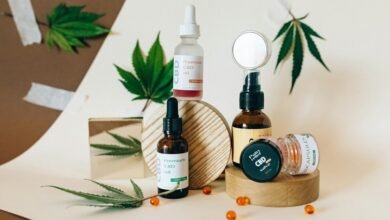Is Cbd Harmful

The safety of CBD has been a topic of growing interest. While many users report benefits, potential risks exist. Some experience side effects like fatigue or changes in appetite. Additionally, CBD may interact with other medications. Understanding these nuances is crucial for anyone considering its use. What factors should be taken into account to ensure safe consumption?
Understanding CBD: What It Is and How It Works
As consumers increasingly seek natural alternatives for health and wellness, understanding cannabidiol (CBD) becomes essential.
CBD interacts with the body's endocannabinoid system, which regulates various physiological processes. By influencing cbd mechanisms, it may help maintain homeostasis, enhancing overall well-being.
Knowledge of these interactions empowers individuals to make informed choices about incorporating CBD into their health routines, promoting a sense of personal freedom.
Potential Benefits of CBD: What Research Shows
Although research on cannabidiol (CBD) is still evolving, several studies suggest that it may offer a range of potential benefits.
Notably, CBD has been associated with effective pain relief, providing a natural alternative for those seeking to alleviate discomfort.
Additionally, evidence indicates that CBD may contribute to anxiety reduction, promoting a sense of calm and well-being for individuals navigating stress and mental health challenges.
Risks and Side Effects of CBD: What You Should Know
While many individuals seek the potential benefits of CBD, it is important to understand the associated risks and side effects.
CBD interactions with other medications can occur, leading to adverse effects. Additionally, adhering to dosage guidelines is crucial to minimize risks.
Users should remain informed about potential side effects, such as fatigue or changes in appetite, to ensure a safe experience with CBD products.
Considerations for Safe Use of CBD Products
How can individuals ensure the safe use of CBD products?
Adhering to dosage guidelines is crucial, as it helps prevent adverse effects.
Additionally, choosing high-quality products from reputable sources minimizes risks associated with contaminants and inaccurate labeling.
Individuals should also consult healthcare professionals for personalized advice, ensuring that their CBD use aligns with their health needs and does not interact negatively with other medications.
Conclusion
In conclusion, while CBD is largely considered safe for most users, it is essential to remain informed about its potential side effects and interactions. Research indicates that approximately 10% of users may experience adverse effects, such as fatigue or appetite changes. By adhering to recommended dosages and selecting high-quality products, individuals can mitigate risks effectively. Consulting healthcare professionals further ensures a safe and informed approach to incorporating CBD into one's wellness routine.






